CSDE Welcomes 4 New Research Affiliates in Fall Quarter 2024
|
CSDE is pleased to introduce four of our new UW Research Affiliates! Audrey Dorélien, (Assistant Professor, Sociology) studies how human population dynamics and behavior intersect with environmental conditions. Jason Kerwin (Associate Professor, Economics) researches the choices people in developing countries make about health, education, employment, and savings. Morgan Vickers (Assistant Professor, Law, Societies, & Justice) researches radicalized ecologies, 20th century infrastructure projects, and eco-social repair. Sebastián Rubiano-Galvis (Assistant Professor, Law, Societies, & Justice) studies the political ecologies of extraction and toxicity and the politics of environmental knowledge, technology and legal expertise in Colombia and Latin America. Learn more about each affiliate in the full story!
(read more)
|
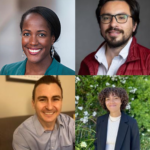 |
Measuring the Impact of Wildfire Smoke: Casey Contributes to a New Framework
|
CSDE Affiliate Joan Casey co-authored an article in The Conversation that details the limitations of current scientific approaches to measuring the “intermittent yet ongoing” exposure to wildfire smoke that many Americans now endure. The article highlights a recent study that proposes a new framework and five metrics which can be used to measure long-term exposure to fine particulate matter from wildfire smoke. Casey’s research linking wildfire smoke to mental health conditions including dementia risk was also mentioned in a recent interview with KQED. Listen here.
(read more)
|
 |
Berridge and Team Members Awarded Grant from the Massachusetts General Hospital Roybal Center for Dyadic Research in Alzheimer’s Disease and Related Dementias
|
CSDE Affiliate Clara Berridge (Social Work) has been awarded a $777,488 grant to conduct a two-year pilot through the new Massachusetts General Hospital Roybal Center for Behavioral Dyadic Research in Alzheimer’s Disease and Related Dementias, supported by NIA. Berridge, David Huh (Social Work), and other members of the study team at the Clinical Informatics Research Group will conduct an RCT to test mechanisms and outcomes of Let’s Talk Tech, the first tool to help care partners and people living with dementia understand and make decisions about digital health technologies. A goal of this dyadic intervention is to enable families to identify and discuss preferences about technology use held by people living with dementia and mild cognitive impairment and to prepare their care partners to make informed, person-centered decisions in the future. This research will continue to advance scientific knowledge about how to enable empowered shared decision making about digital health technologies in the context of an expanding field of AI-integrated devices.
(read more)
|
 |
Swanson to Present at 47th Fulbright Association Annual Meeting
|
CSDE External Affiliate David Swanson (UC Riverside) will present a paper entitled Population Aging in the Western Hemisphere: 2020 to 2050 in the virtual track of the annual meeting of the Fulbright Association on November 8. The paper finds that the Western Hemisphere is facing a significant increase in the population aged 65 years and over, which is expected to more than double between 2020 and 2050. In addition to the findings about upcoming demographic changes, the paper discusses policy implications of these changes for the Western Hemisphere and its multiple regions. Learn more about the conference here.
(read more)
|
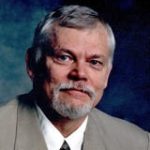 |
|
|
*New* PAA 2025 Deadline Extended to October 1
| Deadline Extended to October 1
Due to the impact of Hurricane Helene in the United States, the PAA 2025 submission deadline is now Tuesday, October 1, 11:59pm Eastern Time.
Sessions will be in-person in Washington, DC. Official kick off will be on Thursday, April 10, with sessions starting Friday, April 11 and going through Sunday, April 13. (Yes, this is a change from our usual days. See more on why.)
Please note a few important items:
- Unfortunately, PAA cannot accommodate schedule requests; if your paper or poster is accepted, it could be scheduled any time between Friday, April 11 and Sunday, April 13.
- Individuals can only serve as a presenting author twice on the program, but can have additional roles such as chair or discussant. (Indicate your interest in being a Chair of Discussant!)
- Organizers will not review papers from authors with whom they have a conflict of interest (close collaborators or current students/postdocs). As such, please do not submit your abstract to someone with whom you may have a conflict of interest.
- There will be no travel awards for PAA 2025.
All accepted presenters will be required to pre-register for the conference by February 3, 2025.
View the Call for Papers
Submit Now
(read more)
|
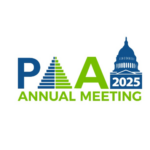 |
*New* Intro to R I: Objects & Programming (10/1/24)
|
This workshop is a 75 minute introduction to the various types of objects used in the R language and basics of programming. We will cover vectors, matrices, data.frames, tibbles, and lists, as well as for loops, while loops, and functions. This is a great workshop for those who have never used R before, as well as experienced R users who work predominantly within the tidyverse.
This workshop is the first in a series of 3 workshops, and will be followed by Intro to R II: Working with Data and Intro to R III: Data Visualization.
The workshop will be hybrid with in-person attendance in Savery 121 and a Zoom link for online attendance will be provided upon registration.
(read more)
|
 |
*New* CSSS Fall 2024 Seminar Series (10/2/24 – 12/4/24)
|
The CSSS Seminar features local and visiting scholars presenting current research at the intersection of statistics and the social sciences. Seminars are held on Wednesdays from 12:30-1:30 pm in room SAV 409 during an academic year. Seminars are available to anyone interested and are being presented in a hybrid format. To attend a seminar virtually, please register here. An email with login information will be sent to you upon registration. Graduate students pursuing a CSSS track may receive credit by enrolling in CS&SS 590. Questions? Contact CSSS (csss@uw.edu).
Upcoming Seminar (featuring CSDE Affiliate Jason Kerwin):
Wednesday, October 2nd, 12:30pm-1:30pm
Jason Kerwin, Economics, UW
Abstract:
Economists often use balance tests to demonstrate that the treatment and control groups are comparable prior to an intervention. We show that typical implementations of balance tests have poor statistical properties. Pairwise t-tests leave it unclear how many rejections indicate overall imbalance. Omnibus tests of joint orthogonality, in which the treatment is regressed on all the baseline covariates, address this ambiguity but substantially over-reject the null hypothesis using the sampling-based p-values that are typical in the literature. This problem is exacerbated when the number of covariates is high compared to the number of observations. We examine the performance of alternative tests, and show that omnibus F-tests of joint orthogonality with randomization inference p-values have the correct size and reasonable power. We apply these tests to data from two prominent recent articles, where standard F-tests indicate imbalance, and show that the study arms are actually balanced when appropriate tests are used.
(read more)
|
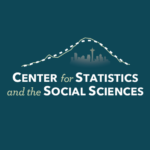 |
2025 National Academy of Education – Spencer Dissertation Fellowship: Accepting Applications and Informational Webinars (Due 10/3/24)
|
The Dissertation Fellowship seeks to encourage a new generation of scholars from a wide range of disciplines and professional fields to undertake research relevant to the improvement of education. These $27,500 fellowships support individuals whose dissertations show potential for bringing fresh and constructive perspectives to the history, theory, or practice of formal or informal education anywhere around the world. Fellows will attend professional development retreats and receive mentorship from NAEd members and other senior scholars in their field. This highly competitive program aims to identify the most talented emerging researchers conducting dissertation research related to education. The NAEd/Spencer Dissertation Fellowship will fund 35 promising scholars.
Attend a live webinar on September 11, 4:00 - 5:00 pm Eastern to learn more about this opportunity. Attendees have the opportunity to ask questions to NAEd staff and the Chair of the selection committee.
NAEd/Spencer Dissertation Fellowship
Deadline to apply: October 3, 2024
(read more)
|
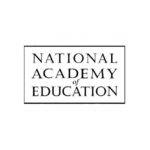 |
Autumn 2024 CSDE Computational Demography Working Group Talks (Wednesdays at 9am PT)
|
During Autumn 2024, CDWG will co-host weekly seminars with the Max Planck Institute for Demographic Research (MPIDR). Researchers from both institutions will meet in hybrid to discuss novel data, methods, and applications of demographic and social science research. Example talks include The Structure of Opportunity and Wage Mobility by Dr. Michael Schultz, and Differentiating Emigration from Return Migration in Digital Trace Data: A case study of scholarly migration by Dr. Aliakbar Akbaritabar. Please refer to the Quarter Schedule for the full list of speakers.
(read more)
|
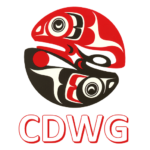 |
Call for Papers: Demographic Change and Challenges in the Americas – Canadian Studies in Population (10/15/24)
|
Special issue of Canadian Studies in Population on “Demographic Change and Challenges in the Americas”
- Deadline for submissions: 15 October 2024
This special issue of Canadian Studies in Population will spotlight key demographic concerns facing the Americas, including migration, mortality and morbidity, fertility, and family dynamics, and provide a forward-looking introduction that sets an agenda for a more integrated approach to understanding demographic change in the region. We seek papers that address demographic processes in the Americas, broadly defined, from Canada to Patagonia.
Please read the full Call for Papers online
(read more)
|
 |
NIH Now Accepting Extramural Loan Repayment Program Applications (Due 11/21/24)
|
The NIH is now accepting applications for the Extramural Loan Repayment Program (LRP)! Awardees can receive up to $100,000 in qualified educational debt repayment with a two-year award.
To learn more about eligibility requirements, application dates, and the benefits of receiving an LRP award, be sure to visit the LRP website, check out our overview video, and attend one of our upcoming events:
Please note that the deadline to submit your Extramural LRP application is November 21, 2024
(read more)
|
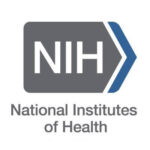 |
2025 National Academy of Education – Spencer Postdoctoral Fellowships: Accepting Applications and Informational Webinars (Due 11/7/24)
|
The Postdoctoral Fellowship supports early-career scholars working in critical areas of educational scholarship. Fellows will receive $70,000 for one academic year of research, or $35,000 for each of two contiguous years, working half-time. Fellows attend professional development retreats and receive mentorship from NAEd members and other senior scholars in their field. Applicants must have had their PhD, EdD, or equivalent research degree conferred between January 1, 2019, and December 31, 2023, to be eligible to apply this year. This fellowship is non-residential, and applications from all disciplines are encouraged. The NAEd/Spencer Postdoctoral Fellowship will fund 25 early-career researchers.
Attend a live webinar on September 20, 1:00 - 2:00 pm Eastern to learn more about this opportunity. Attendees have the opportunity to ask questions to NAEd staff and the Chair of the selection committee.
NAEd/Spencer Postdoctoral Fellowship
Deadline to apply: November 7, 2024
(read more)
|
 |
IES Announces New Request for Applications for the Special Education Dissertation Research Fellowship Program (Application Deadline 11/14/24)
|
The National Center for Special Education Research released a new Fiscal Year 2025 grant competition.
Special Education Dissertation Research Fellowship Program (84.324G)
This program seeks to broaden opportunities for emerging researchers to engage with IES and conduct high-quality research related to learners with or at risk for disabilities. NCSER will provide financial support for advanced doctoral students—under the guidance of a sponsor at their university—to conduct research in understudied areas related to learners, their families, practitioners, and policymakers.
- The application deadline is November 14, 2024.
More information about the IES research programs, application process, and deadlines are available on the IES Funding Opportunities web page.
(read more)
|
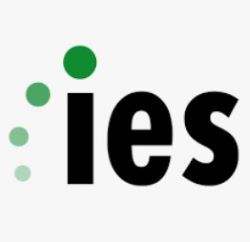 |
*New* Cultivating Connections for Community Engagement (UW tri-campus): Fall Quarter Community of Practice (save the date for 11/15/24)
|
SAVE THE DATE: Cultivating Connections for Community Engagement: Fall Quarter Community of Practice
- When/Where: Friday November 15th, 11am-12:30PM via Zoom
- Who: Faculty and staff from Bothell, Seattle or Tacoma campus who are interested in community-engaged research and/or learning
- Why: To connect with faculty and staff from all 3 campuses who practice, support, or are interested in community engagement; to explore what’s happening across the UW in this space; and to generate ideas and share perspectives for building the university’s capacity for community-engaged scholarship, teaching and learning.
(read more)
|
 |
Updating the Definition of Sexual and Gender Minority Populations in NIH-Supported Research
CSDE Population Research Planning Grants (PRPGs) (Rolling deadline)
|
Population Research Planning Grants (PRPGs) are designed to provide in-kind support and/or funds of up to $25k* to support a wide array of activity types throughout the development of a research project. As part of our mission to complement rather than duplicate other campus opportunities such as the Population Health Initiative seed grants, we will consider funding things activities such as:
(read more)
|
 |
CSDE Matching Support to Supplement On-campus Funding (Rolling deadline)
|
CSDE Matching Support includes in-kind or monetary support to accompany a submission to other on-campus funding mechanism, such as PHI, EarthLab, or Urban@UW. All projects must have a CSDE affiliate who is UW faculty and is listed as a PI or co-PI, with any number of other collaborators. Note that we require (PRPGs) or strongly suggest (matching funds) contacting either Development Core Director (Steven Goodreau) or CSDE Director (Sara Curran) to discuss possibilities for your specific proposal before submission.
(read more)
|
 |
NSF: Proposals Impacting Tribal Nation Resources & Interests
|
As of 5/20/2024, NSF proposals that may impact the resources or interests of a federally recognized Tribal Nation will not be awarded by NSF without prior written approval from the official(s) designated by the relevant Tribal Nation(s).
Proposers must:
- Seek guidance from the potentially impacted Tribal Nation on activities that require review and prior approval from that Tribal Nation’s authorized designee.
- Submit a written request to the relevant Tribal Nation (based on their guidance), or approval to carry out the proposed activity that requires their review and approval.
- Complete the checkbox for “Potential Impacts on Tribal Nations” on the Cover Sheet. Note, lead organizations are responsible for this on collaborative proposals & proposals with subawards considered a single unified project.
- Upload one of the following into "Other supplementary documents" of Research.gov:
- a copy of the written request to the relevant Tribal Nation to carry out any proposed activity/activities that may require prior approval from them
- written confirmation from the Tribal Nation(s) that review and approval is not required
- a copy of relevant Tribal Nation approval
(read more)
|
 |
Overview of Grant Application and Review Changes for Due Dates on or after January 25, 2025
|
This notice provides the research and research training community an overview of application and peer review changes impacting grant applications submitted for due dates on or after January 25, 2025, including:
- Simplified Review Framework for Most Research Project Grant Applications
- Revisions to the NIH Fellowship Application and Review Process
- Updates to Reference Letter Guidance
- Updates to NRSA Training Grant Applications
- Updated Application Forms (FORMS-I)
- Common Forms for Biographical Sketch and Current and Pending (Other) Support
(read more)
|
 |
|
|

